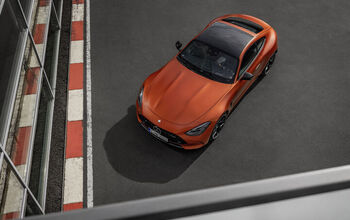Audi Considering Selling Cars in Iran

Audi is considering its first-ever entry into the Iranian auto market.
The German automaker sees “growing potential” for luxury vehicles in Iran, now that world powers have lifted international sanctions.
Following years of economic isolation, the Islamic Republic is opening up as a market and German companies will be able to export goods worth $10.9 billion to Iran, according to Germany’s DIHK Chamber of Commerce and Industry. According to a recent report, representatives of Audi are currently in Iran and are in discussions with possible importers to examine the prospects for business.
SEE ALSO: Audi Lands Q2, Q4 Trademarks in Deal with FCA
Audi has never done business in Iran as the automaker hadn’t emerged as a luxury brand when the country was shut off from international markets following Iran’s Islamic Revolution in 1979.
Rival Daimler (Mercedes-Benz) announced that its truck division has signed letters of intent with joint venture partners Iran Khodro Diesel and Mammut Group while BMW has said that future entry into the market “will depend on political and economical developments.”
[Source: Automotive News]
Discuss this story on our Audi Forum

Jason Siu began his career in automotive journalism in 2003 with Modified Magazine, a property previously held by VerticalScope. As the West Coast Editor, he played a pivotal role while also extending his expertise to Modified Luxury & Exotics and Modified Mustangs. Beyond his editorial work, Jason authored two notable Cartech books. His tenure at AutoGuide.com saw him immersed in the daily news cycle, yet his passion for hands-on evaluation led him to focus on testing and product reviews, offering well-rounded recommendations to AutoGuide readers. Currently, as the Content Director for VerticalScope, Jason spearheads the content strategy for an array of online publications, a role that has him at the helm of ensuring quality and consistency across the board.
More by Jason Siu
































Comments
Join the conversation